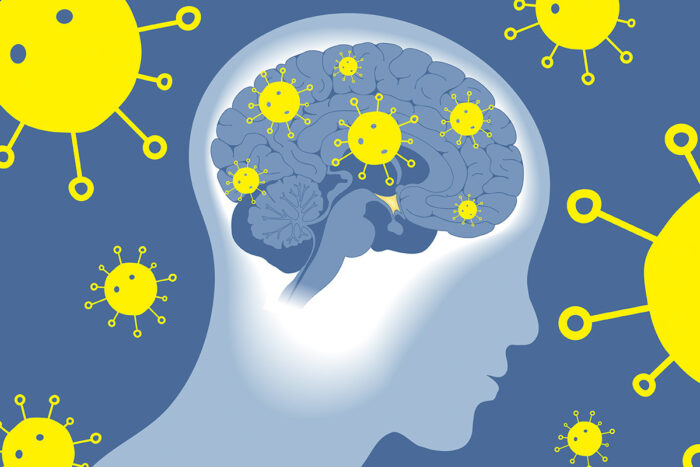
A new study reveals that severe COVID-19 infections damage nerve cells in brains, leading to several brain problems. Read to know more about the side effects of the infection.
Does severe Covid infection lead to brain problems?
A new study conducted by scientists at the King’s College London reveals a connection between severe COVID-19 infections and brain problems such as memory loss and confusion. According to it, a contrary immune response to the virus is increasing the death rate of neurons. This has a “profound” impact on regeneration in the hippocampus region. The hippocampus region is vital for learning and memory.
“These neurological symptoms are very concerning for patients and their families, and the hope is that our research can help identify which treatments would be most appropriate to lessen or prevent these symptoms,” stated Carmine Pariante. Pariante is a senior author of the study. Additionally, she is also a professor of biological psychiatry at KCL’s Institute of Psychiatry. Moreover, even if the virus does not infect the brain, it is capable of triggering neurological problems such as brain fog and delirium. The issues are more profound in those suffering from long covid.
More on the study

By testing the blood samples of 36 patients, the research revealed 15 times higher levels of IL-6. Interleukin 6 (IL-6) is a protein that has broad-ranging effects on the immune system, including the host’s ability to respond to an infection. They are released as a mechanism to warn other immune cells. Those suffering from delirium had six times more.
Additionally, by further studying the impact of IL-6, they found delirium was reducing the generation of new brain cells. It was also increasing the normal death rate of neurons. “We believe these proteins are responsible for the delirium symptoms in acute COVID-19 patients, and in general in long Covid patients experiencing neurological symptoms,” stated Dr. Alessandra Borsini. Dr. Borsini is the lead author of the study.






